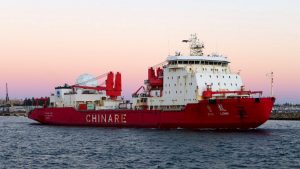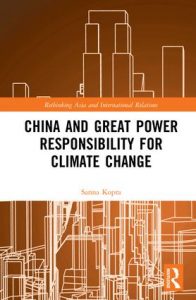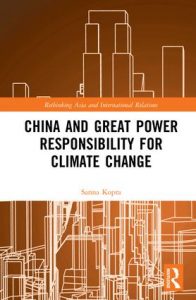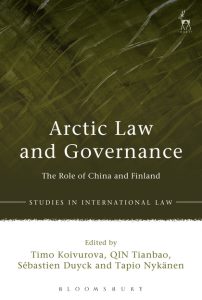
The China Law Week 2020 continued with the third session on “New Challenges for China’s Belt and Road Initiative (BRI)”. It was chaired by Björn Ahl, who is Professor and Chair of Chinese Legal Culture at the University of Cologne and Visiting Professor at the University of Helsinki.

Julie Yu-Wen Chen, Professor of Chinese Studies and Director of the Confucius Institute at the Faculty of Arts at the University of Helsinki, gave the first presentation. Professor Chen talked about the localized approach in understanding One Belt One Road (OBOR)’s impacts. Her presentation covered two parts: the problems of China-centric approaches when studying the BRI’s actual impacts and the theoretical framework. Professor Chen uses the strategic action field (SAF) for her BRI research, which she defined as a “socially constructed arena” where actors constantly pull and haul their interests on a particular space and issue due to their contentious or unclear nature.

The session continued with a presentation by Professor Ronald C. Brown. Professor Brown centered his presentation on China’s BRI in Central Eastern European Countries, through the concept of 17+1. The main issue here is whether the 17+1 concept helps China to connect with the EU or whether it divides it or could lead to a pathway to EU-China “pre-trade agreement”. BRI gains connectivity to China and maximizes economic growth opportunities but the questions of who is more important (EU or China) for 17+1 countries and who to give loyalty to if there is a conflict linger.
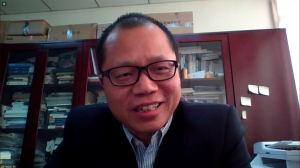
Professor Jin Haijun from Renmin University held the next presentation with the title “An Overview of Intellectual Property Protection and Cooperation under the BRI”. He emphasized that China has launched several initiatives such as the Digital Economy International Cooperation Initiative and the Joint Statement on Pragmatic Cooperation in the Field of Intellectual Property for the BRI countries. China has further opted to include IP provisions in the Civil Code. It also has specialized IP courts and tribunals. China has also placed special attention on constant reforms for IP action, protection and cooperation among BRI countries, and patent court system reforms.

Associate Professor Yifeng Chen from the Peking University Law School followed with a presentation about transnational labour protection and the BRI. He highlighted the labour dimension of the BRI and introduced different approaches to incorporate labour into the BRI. They are: using the ILO conventions and encouraging ratification, promoting ILO fundamental labour rights protection, incorporating labour into international economic arrangement, and encouraging corporate social responsibility.

In the fifth presentation, Professor Matti Nojonen from the University of Lapland discussed China’s Arctic Policy and the “Polar Silk Road” Initiative. A few years ago, China introduced the “Polar Silk Road” Initiative. China has been involved in Arctic affairs and the Nordic economy for decades, which makes it easy for most states to adjust to the new project. Of course, there are still a lot of challenges to face. The project must be adjusted to local circumstances such as the existing national law and all involved countries and companies have to reach agreements on specific strategies.
The session closed with a panel discussion under the motto “What are the emerging challenges of the BRI?”
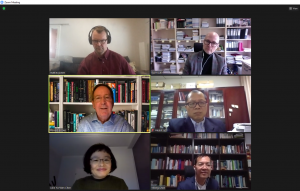
The Center would like to thank our interns, Sukhman Gill, Elias Jakala, Li Yuan, Anwar Al-Hamidi, Anqi Xiang, Annette Rapo, and Johanna Fähnrich for contributing text for this article.


